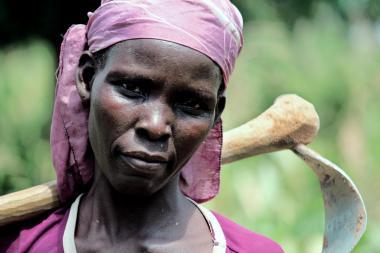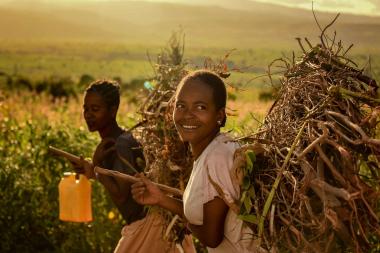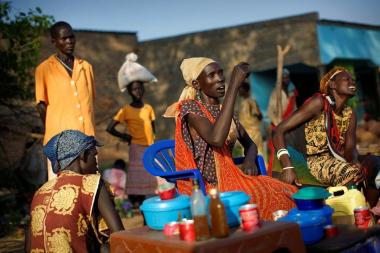Blog
Women and fishing: Gender roles and livelihoods in Bor, South Sudan
Pastoralism is a well-known livelihood in South Sudan. But as people adapt to a changing climate, this blog explores how fishing is just as important a livelihood – especially for women.
Publisher SPARC
Tending cattle and pastoralism is a well-known livelihood in South Sudan. But as part of its work on women’s empowerment in South Sudan, research by SPARC-IDRC partner Kenyatta University shows that due to the vagaries posed by climate change, fishing is just as important a livelihood – and especially for women.
Dinka in the White Nile floodplain
South Sudan has experienced more than two decades of conflict. Peace remains transient, and the consequences of conflict endure with disrupted infrastructure and a fragile political system. Despite this, women using their indigenous knowledge are playing a key role in rebuilding and strengthening their lives in the post-conflict setting.
Bor in Jonglei State lies to the east of the White Nile River and is part of the Sudd wetlands, one of the largest freshwater ecosystems in the world. Fish are thus abundant and have long played a cultural and subsistence role among the Dinka community.
Fish in Dinka culture and as an economic livelihood
Fish hold symbolic meanings in Dinka culture, representing fertility, wealth and life. Fish are used in traditional art, dance, and music to convey cultural values and beliefs. They are also often used as offerings in traditional ceremonies and rituals as they are a symbol of abundance and prosperity.
As well as cultural values, fish are a valuable source of economic livelihood. Whilst men are responsible for catching fish, women play a key role in processing fish for consumption and sale.
Indigenous fish preservation methods, such as smoking, salting and drying, are led by women. Preserving fish ensures an ongoing source of protein for family consumption. It also creates a valuable commodity that can earn an income. Far from being under pressure, fishing as a livelihood is showing great growth potential.
An elderly Dinka woman we spoke to said: “The money we get from fish trading significantly contributes to our household income…our earnings from fish have more than doubled”.
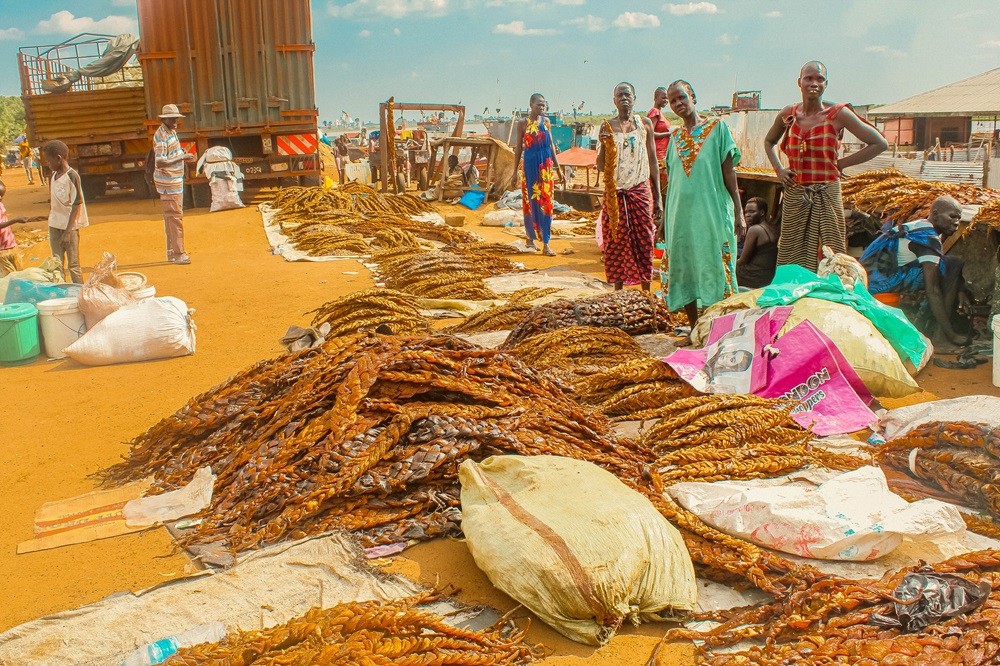
Women’s roles in fishing
The economic potential of fishing has also led to the shifting of typical gender roles around fishing. Whilst typically the remit of men, women have been preserving and selling fish and play a role in supporting male family members. This includes tasks such as preparing equipment, assisting with boat maintenance, and coordinating fishing activities.
Despite these evolving gendered roles in the industry, women still tend to not get involved in fishing itself. This is because fishing trips typically last for 2-3 days and thus would take women away from their home management tasks and responsibility for children.
Changing gender norms
One Dinka man also underlined the physical strength of men as a factor making them more suited to catching fish. He said: “Women are not supposed to bend for too long, they are not supposed to spend a whole day standing, and it can affect their childbearing abilities.
“More importantly, fishing has risks from dangerous water creatures and sometimes the capsizing of fishing boats”.
Other men also gave examples of resistance to the changing gender roles. Some said that if their wives are too involved in income generating activities, they can be stigmatised as being irresponsible and dominated by their wives.
However, this resistance was not widespread. Many men are actively encouraging their wives to get involved in fishing-related activities along the value chain as this enables them to take good care of their children. One chief said: “From the time I married my wife, I had never imagined that I would allow her to be involved in [the] fish business or any woman from my community. I have had to erase those imaginations from my mind after seeing women from other areas, who were the first to embrace fishing activities, flourishing and prospering in many ways and no cases of divorces in my area have been reported. I have now allowed women in my area of jurisdiction to do fish business”.
But Dinka women who have tried to engage in the more masculine fishing roles reported challenges in accessing credit, equipment and training related to the fishery.
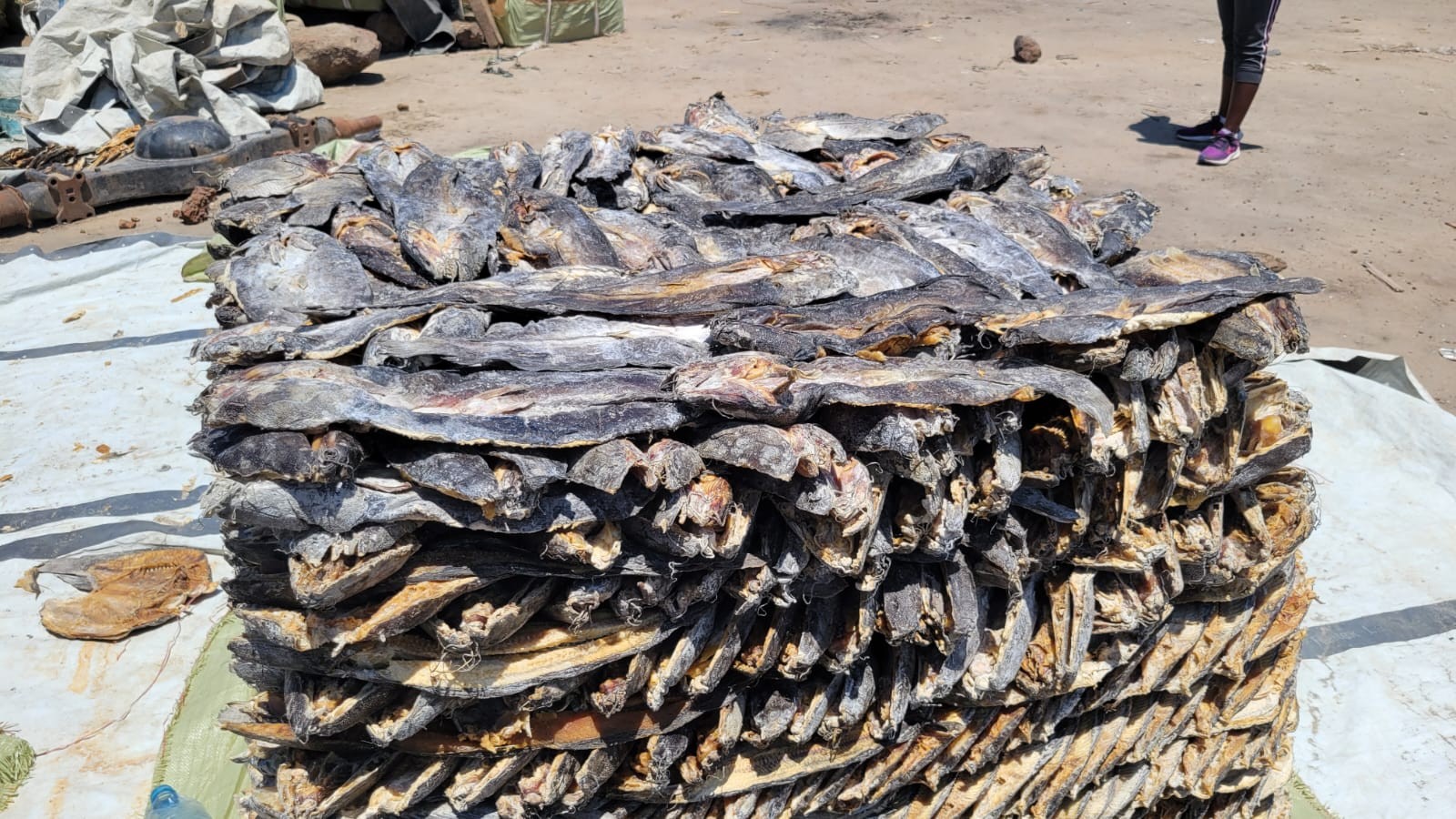
Supporting fishing for women’s empowerment and gender equality
To date, there have been many efforts by Non-Governmental Organisations in South Sudan to raise awareness of gender inequality and provide training and skills development programmes. The aim of these programmes is to slowly bring to the fore and challenge the otherwise implicit gender norms that can prevent the transition to equality.
At the same time, development actors have also supported the development of the fishing industry. The UN Mission in South Sudan constructed the Bor fish market in 2016, providing a place for trade to take place.
Further efforts to support a transition to gender equality in fishing can proactively support women-led activities so that their capacity to earn equals that of men. This can include expanding storage facilities and supporting women’s organisations to amplify their voices and influence decision-making processes.
There is no doubt that the fishing economy plays a key role in livelihoods, gender roles, and cultural norms in Bor in South Sudan. The potential for the fishing industry to provide opportunities for women’s economic empowerment and transition to gender equality is real. The call now is for development partners to ensure that they support these opportunities.
Find out more about SPARC’s partnership with the International Development Research Centre (IDRC), Kenyatta University, the Fulbe Cultural and Development Organization (FUDECO) and the Centre for Population and Environmental Development (CPED) in this blog.
Don't miss our new video on 'Empowering pastoralist women: Transforming lives through gender equity in drylands' here:
